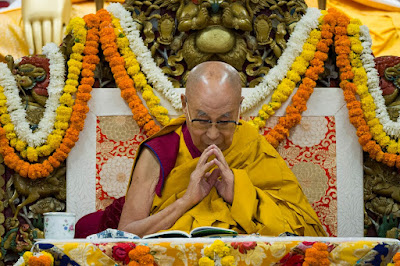Tom Hanks: A Hollywood Legend
Tom Hanks: A Hollywood Legend
Tom Hanks is one of the most beloved and celebrated actors in Hollywood history. His career, spanning over four decades, is marked by a diverse array of roles that showcase his immense talent and versatility. From his early days in comedy to his profound performances in dramatic roles, Hanks has continually proven himself as a master of his craft. As a lifelong fan, I find immense joy in revisiting his extensive filmography and reflecting on the impact he has had on the world of cinema.
Early Career and Breakthrough
Tom Hanks began his career with humble beginnings, taking on small roles in television and low-budget films. His first significant break came with the 1980 sitcom “Bosom Buddies,” where he played Kip Wilson, a man who, along with his friend, dresses as a woman to live in an affordable, all-female apartment complex. This role showcased Hanks’ comedic talents and opened the door to further opportunities.
Hanks’ breakthrough in film came with the 1984 romantic comedy “Splash,” directed by Ron Howard. Playing the role of Allen Bauer, a man who falls in love with a mermaid, Hanks demonstrated his charm and ability to lead a successful film. This performance set the stage for his rise to stardom, leading to a string of successful comedies such as “Bachelor Party” (1984), “The Money Pit” (1986), and “Big” (1988).
“Big” was a particularly pivotal film for Hanks, earning him his first Academy Award nomination for Best Actor. His portrayal of Josh Baskin, a young boy who magically transforms into an adult, was both heartwarming and humorous, solidifying his reputation as a talented and relatable actor.
The Dramatic Shift
While Hanks had proven his comedic prowess, the early 1990s marked a significant shift in his career towards more dramatic roles. This transition began with “A League of Their Own” (1992), where he played the role of Jimmy Dugan, a washed-up baseball player who becomes the coach of an all-female team. His performance was both comedic and poignant, showcasing his range as an actor.
In 1993, Hanks starred in “Philadelphia,” a groundbreaking film that addressed the AIDS crisis. His portrayal of Andrew Beckett, a lawyer who is fired from his firm due to his illness, was powerful and moving. Hanks’ dedication to the role, including losing weight and researching the experiences of AIDS patients, earned him his first Academy Award for Best Actor.
The following year, Hanks starred in “Forrest Gump,” a film that would become one of the most iconic of his career. His portrayal of the titular character, a man with a low IQ who unwittingly influences several major historical events, was both touching and memorable. “Forrest Gump” earned Hanks his second consecutive Academy Award for Best Actor, a rare and remarkable achievement.
Continued Success and Versatility
Throughout the late 1990s and early 2000s, Hanks continued to demonstrate his versatility and talent across a wide range of genres. He starred in the romantic comedy “Sleepless in Seattle” (1993) and its spiritual successor “You’ve Got Mail” (1998), both of which paired him with Meg Ryan and showcased his ability to deliver heartfelt performances in romantic roles.
Hanks’ collaboration with director Steven Spielberg led to several critically acclaimed films, including “Saving Private Ryan” (1998), where he played Captain John Miller, a role that earned him another Academy Award nomination. The film’s realistic depiction of World War II and Hanks’ powerful performance cemented his status as one of Hollywood’s leading actors.
In 2000, Hanks took on the challenging role of Chuck Noland in “Cast Away,” a film that required him to carry much of the movie on his own as a man stranded on a deserted island. His transformative performance, which included significant weight loss and physical transformation, earned him yet another Academy Award nomination.
Legacy and Impact
Tom Hanks’ career is marked not only by his numerous accolades but also by his impact on the film industry and audiences worldwide. His ability to bring depth and humanity to his characters has made him a beloved figure, earning him the nickname “America’s Dad.” Beyond his acting, Hanks is also known for his work as a producer and director, contributing to projects such as the HBO miniseries “Band of Brothers” and “The Pacific.”
Hanks’ contributions to cinema have been recognized with numerous awards and honors, including the Presidential Medal of Freedom in 2016. His commitment to his craft, his ability to connect with audiences, and his genuine, down-to-earth persona have endeared him to fans of all ages.
As a lifelong fan, I have always admired Tom Hanks not just for his incredible talent, but for the way he consistently brings authenticity and warmth to his roles. His films have provided comfort, inspiration, and entertainment, making him a true legend in Hollywood. Whether he is making us laugh, cry, or ponder the complexities of life, Tom Hanks’ impact on the world of cinema is undeniable, and his legacy will undoubtedly endure for generations to come. — Dr. Ian Weisberg
 |
| Dr. Ian Weisberg |

Originally published at https://drianweisberg.com on May 29, 2024.



Comments
Post a Comment